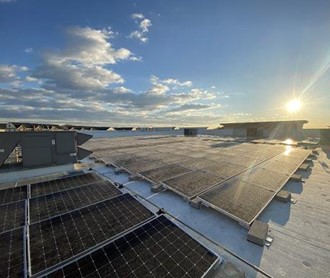
It is important to take into account a few things when you are considering a new roof. These include the type of material to use, the contractor you choose, and the underlayment you will use. It is essential to maintain a new roof properly. Fortunately, there are a number of tips that you can follow to make the process of replacing the roof go smoothly.
How to choose a roofing contractor
There are many options when it comes to replacing your roof. A roofing contractor that specializes in roof repairs or replacements can be chosen. Professional roofers can replace your roof for a fraction of the cost and add value to your home. You should research the contractor you are considering and get recommendations from family members and friends. Ask your agent or insurance company for recommendations.
Choose an underlayment
When replacing your roof, there are several factors to consider before choosing the right underlayment. The type of roof you choose, the climate in which you live, and the amount of money you have are all important factors. Choosing the right underlayment will help keep your home dry and protect your interior furnishings from UV rays and other environmental factors.
Investing in a sturdy roof
You can increase the value of your property by investing in a quality roof. Because they don't have to replace their roof soon, potential buyers will pay more for homes with a high-quality roof.

Investing in a chimney cricket
There are several tips and tricks to help you install a chimney cricket. First, you must make sure that your roof has a high enough slope. This is vital and should be equal to the slope of your roof's roofing shingles. To set up the chimney cricket, you should also adhere to all applicable building codes and international guidelines.
FAQ
What happens to one party if they don't want the other side?
If you fail to complete your part of the bargain, the law allows the other party to treat your promise as broken and sue you for damages. Damages are the amount owed, plus interest, court costs, legal fees.
Who will pay for the service
The SCA identifies who is responsible for paying the service. You may be able to file a claim for compensation against the court if the service provider fails to pay in full.
How do I submit a building permit application?
Along with your SCA, proof must be provided that:
-
There is adequate parking space available for visitors;
-
These routes can be used for access;
-
Access to all utilities is possible
-
All works must be in compliance with all applicable planning regulations.
When do I have to pay for the service/contractor?
The type and amount of the service will affect the payment schedule. You would normally pay the contractor when the job is done. However, when you purchase a product from a seller, such as a kitchen range oven, you may only pay once you have received and tested it.
What is a service-contract agreement?
A Service Contract Agreement, or SCA, is an agreement between parties to offer services to one another. The SCA describes the services that are being offered, how they should be performed, who is responsible for their payment, and when they should begin. The SCA also describes what happens if either side violates its obligations.
Is there a way to prepare for negotiation before hand?
Yes!
There are many things you can do to prepare for negotiations.
One way is to write out the terms and conditions of the agreement
Statistics
- While we offer all our high-quality services at competitive prices, we know that many who need our services are on fixed incomes, so we offer a 10 percent discount for seniors and military members. (homeservicecontractorsinc.com)
- (3) The contracting officer may provide for a contract price adjustment based solely on a percentage rate determined by the contracting officer using a published economic indicator incorporated into the solicitation and resulting contract. (acquisition.gov)
- (d) Contractor disputes related to compliance with its obligation shall be handled according to the rules, regulations, and relevant orders of the Secretary of Labor (see 41 CFR60-1.1). (acquisition.gov)
- Don't take their anger personally, they are mad about the situation 99% of the time. (activatemylicense.com)
- Depending on the client's trustworthiness and financial stability, a deposit is usually 10 to 50% of the total contract amount. (lawdepot.com)
External Links
How To
What should a contract of service include?
A Service Agreement (SA) is essential to any business relationship. It defines what you want from each other, and how you will get it. The SA also specifies when and where you expect each party to fulfill its contractual obligations.
Here are the essential elements to a successful SA
-
The scope of both the work and the services required.
-
Particulars of the payment terms, including delivery dates and start dates.
-
A price agreed upon for the project.
-
Any additional charges, like VAT, etc.
-
Whether there is any other matter that should be discussed.
-
Who will take care of the job if it goes wrong?
-
How disputes will be resolved.
-
What happens when one party breaks the contract?
-
What happens when there is a disagreement?
-
When does this contract go into effect
-
What happens when one of the parties doesn't perform?
-
What time do you need to pay your invoices?
-
Who pays for expenses such as travel?
-
Where the money comes.
-
What happens when the client has a change of mind?
-
What happens if the supplier doesn't turn up.
-
Who is allowed to access the site during construction
-
What happens if the customer cancels the project.
-
What happens if the product malfunctions?
-
What happens when the manufacturer refuses supply?
-
What happens if the equipment breaks down.
-
What happens if the project takes more time than anticipated?
-
What happens if the work isn't completed within the agreed timescale?
-
What happens if the final product isn't up to expectations?
-
What happens if the cost exceeds?
-
What happens when the materials are not delivered in time?
-
What happens if the material arrives damaged.
-
What happens if the products are not up to standard.
-
What happens if you cancel the job before it is complete?
-
What happens if the company goes bankrupt?